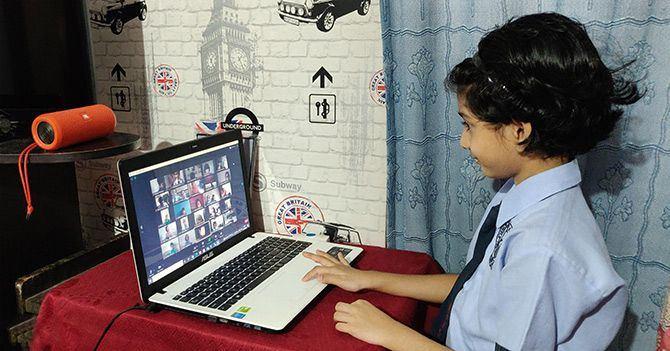The central government restored J&K’s 4G internet after 550 days of restrictions. Internet was restricted in J&K after scrapping of Article 370 was announced on August 5 in 2019. First, the government fully banned internet and then started to resume services in a phased manner.
In the name of national security, the centre restricted J&K residents’ internet access for the past 18 months. People throughout the UT were demanding for restoration of mobile internet services. It was an issue which united people from both Jammu and Kashmir divisions.
Students in J&K suffered the most from the internet restrictions. When schools were shut down because of the pandemic, schools throughout the nation shifted to online classes. It was nearly impossible to attend video calls, download course material and attend exams through 2G internet so, the students of J&K suffered.
Moreover, there were also temporary internet shutdowns introduced in some parts of the UT after militant encounters, particularly South Kashmir. They further demotivated the students.
Jammu and Kashmir administration kept on extending mobile internet restrictions to curb terrorism, online propaganda of terror groups, threats of violence, and to maintain law and order in the union territory. Mobile internet restrictions didn’t affect much terrorism as terrorists always found a way to communicate with each other.
Terrorism was not affected much by internet restrictions in the UT. Within a decade, 2020 witnessed the second-highest militant recruitment in valley. Many new terror outfits such as The Resistance Front and Peoples’ Anti-Fascist Front maintained their presence on social media platforms. These new outfits disseminated their propaganda online without much difficulty apparently from Pakistan.
These terrorist groups used Telegram and WhatsApp groups. When platforms would ban a channel or group, they’d immediately create another. Last year, Peoples’ Anti Fascist Front, disseminated high-quality body-cam videos in which terrorists could be seen carrying out attacks on military personnel in J&K.
The government has not provided any metric or evidence to support their claim that internet restrictions have helped in curbing the violence or terrorism. Just a few weeks back, two new militant outfits ‘United Liberation Front’ and ‘Kashmir Tigers’ made their presence public on Telegram channels and could be seen by anyone. This raises a question over the government’s stand that mobile internet restriction has affected terrorism activities.
